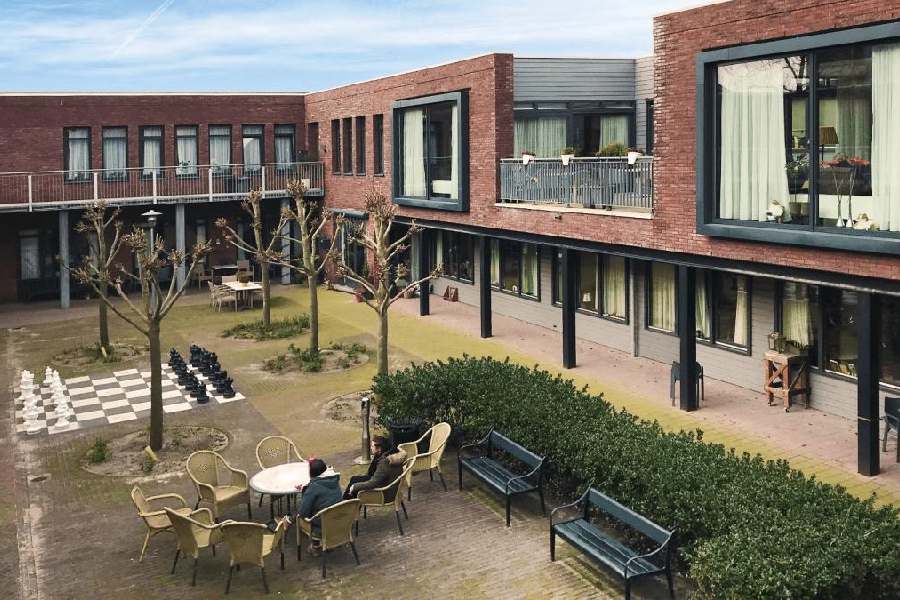What does someone who has a fading memory do if he wants a day out in the sun? What if he cannot find his way back to his room? Does he then stay within the confines of the bedroom for the rest of his life?
People living with dementia should have a space which will help them lead a normal life as far as possible, say dementia specialists.
Such people typically wander off and are not able to find their way back, have comorbidities, lose a sense of time, lack understanding of social mores and are unable to lead a life in a community. They are forced to lead a solitary life under the watch of their caregivers.
To enable them to have a normal life as far as possible, special spaces termed dementia villages are being created. Such villages typically have a make-believe grocery, a hair-cutting salon, a movie theatre, a bank and if possible a club too.
The Kolkata chapter of Alzheimer’s and Related Disorders Society of India (ARDSI) plans to have a dementia village for people living with the disease near Joka.
The concept of dementia village has caught on in Europe. The Netherlands was the first to have such a village in 2009.
The Hogeweyk, located in the Netherlands, is a care facility and home to people living with dementia.
The care concept practised here was developed in 1993 after exploring the question: How do you want to live if you are diagnosed with dementia?
The answer was that the traditional nursing homes were not what they preferred. “Dementia village” is a place where residents live a normal life, where they have the freedom to be outside, socialise with other residents or just enjoy what’s going on in the neighbourhood. Residents are free to roam around, visit the supermarket or the restaurant, get their hair done or be active in one of the 25 clubs available at The Hogeweyk. The concept has now caught on in Germany and other European countries.
However, Janenette Spiering, the founder of The Hogeweyk, denounces the term dementia village. She would prefer to call it a neighbourhood or a community or just The Hoyeweyk.
ARDSI, Kolkata chapter plans to start a similar village with the 10 cottas of land that it bought early this year.
“The Hogeweyk is huge, the size of ten football fields. Here we are starting small. We have to plan the space very carefully so that people living with dementia can roam about without getting lost. The space will have everything that they would need to lead a normal life. Like they should be able to visit a temple, a grocery store, have a haircut, go to a bank, watch a movie, go for a walk, and interact in a community. All this, of course, will be make-belief with caregivers with suitable attires manning these facilities to give them a sense of familiarity and freedom,” said Nilanjana Maulik, secretary of the Kolkata chapter of ARDSI that runs a daycare centre for such people in the city.
“It’s a beautiful concept. I don’t know if we will be able to see it during our lifetime but would really love to live in such a facility with my husband,” said Jyoti Sethi, spouse and caregiver to Amarjit Singh Sethi, a 76-year-old dementia patient
Work on the village will start soon with fundraising beginning in September.
“We will be in our 25th year next year, and we would like to start work on it then. We need architects who are sensitised to the disease and its consequent effects on persons living with dementia to design the village. There should be garden paths that will help the persons living with dementia take a walk but will keep them away from the exits. Rooms should be open and should not have any locks or bolts as they can lock themselves in and may not be able to come out on their own. There should be living spaces for them and the caregivers,” said Maulik.
Besides, Maulik plans to make the village accessible to all persons living with dementia irrespective of their socio-economic status.
“Those who can afford it can have a room to themselves, those who can’t, can share living spaces. Nobody will be turned away for lack of money,” said Maulik.
